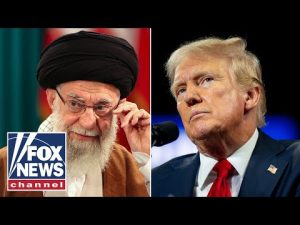In the ever-entertaining world of modern media, one moment stood out in the cacophony of news: former First Lady Michelle Obama recently found herself in the spotlight again, not for her previous roles and accomplishments, but for her newfound independence post-White House. During discussions, Michelle expressed her new ability to make choices for herself, independent from past obligations—a sentiment that was not related to public recognition or lack thereof. It seems that, even with her continued prominence, Michelle is content with her newfound autonomy, regardless of her visibility in the public eye.
Now, one might think that challenges of recognition would not be high on Michelle Obama’s list of points to discuss. However, she appears focused on her evolving role and personal growth rather than public perception. Meanwhile, internet commentary often finds unexpected parallels, even drawing whimsical connections between distinct aspects of culture and real life.
It’s intriguing to consider how pop culture, including movie franchises like “Predator,” owned by Disney through 20th Century Studios, interacts with our perception of public figures. Although the internet is known for creating surprising associations, there have been no verified reports tying a Predator film narrative directly to Michelle Obama or using her likeness.
Critics of creative reboots, like those often seen with beloved classics, have vocalized apprehension about shifts from original formats. Yet without specific evidence from recent developments in the Predator franchise linked to the former First Lady, it seems this intersection of entertainment and public identity can sometimes blend fiction with reality in curious ways.
Whether you’re laughing at unexpected internet humor or pondering popular culture’s quick turns and reinventions, today’s trends might swiftly become tomorrow’s echoes. In this age of nonstop updates, the blend of Hollywood narratives and real-world personalities remains an ongoing spectacle.







